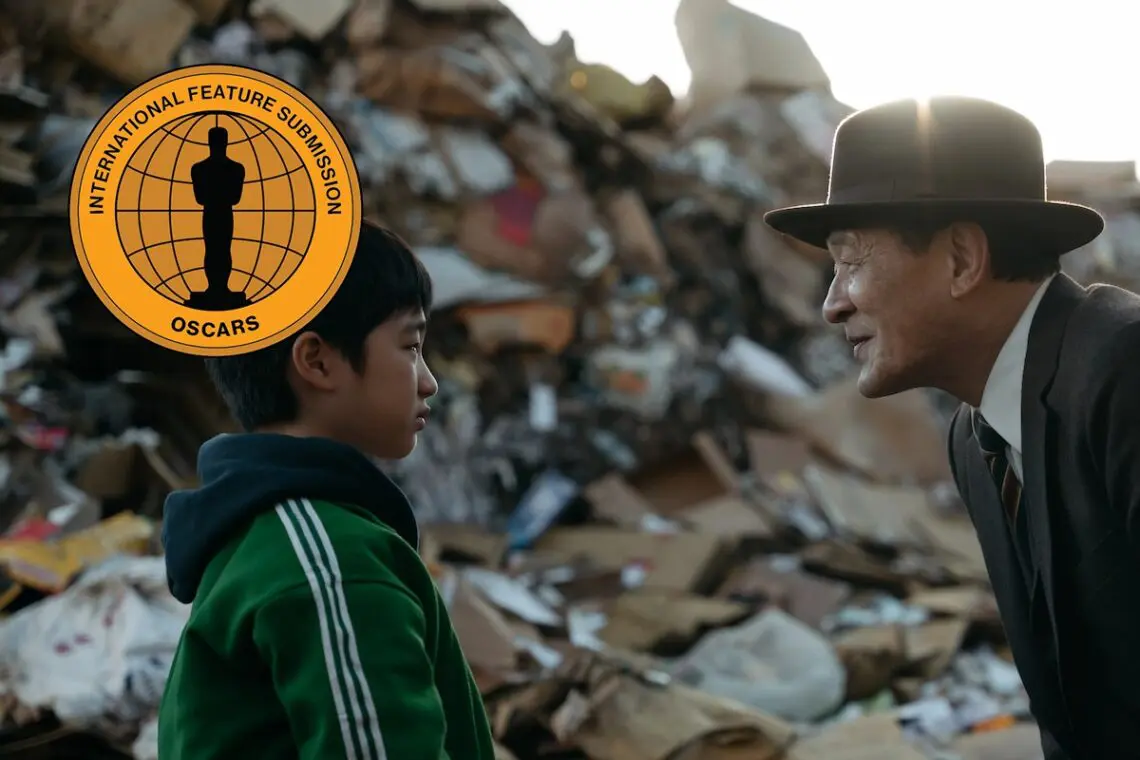Set in Taipei, against the backdrop of the economic bubble of 1989, the Taiwanese international feature Oscar submission “Old Fox” is a relatively engaging popular melodrama about altruism vs. self-interest and inequality of all sorts. In his fourth feature, director Hsiao Ya-Chuan follows the unsentimental education of a motherless 11-year-old boy, Liao Jie (Bai Run-yin), raised in poverty by his kindly father, Liao Tai-lai (Liu Kuan-Ting), a waiter at a busy banqueting hall. One rainy day, the bullied lad comes to the attention of his landlord, the wealthy Boss Xie (Akio Chen), nicknamed Old Fox for his cunning. Recognizing his younger self in the small boy, Old Fox tries to teach Jie how he rose to wealth and power.
The screenplay by the director and co-writer Chan I-wen, is inspired by helmer Hsiao’s attempts to explain fairness and justice to his own children. They create a gripping moral quandary for their young protagonist, one that should inspire much discussion between parents and children. Indeed, the film was one of Taiwan’s most awarded of 2023, collecting multiple kudos at the Golden Horse Awards and the Taipei International Film Festival.
Popular on Variety Under the influence of the intimidating Old Fox, who cruises the neighborhood in chauffeur-driven limousines or high-powered sports cars, young Jie is tantalized by the power that wealth and special knowledge bring. The bigwig’s beliefs and way of life present a stark contrast to those of his scrimping and saving father, who is heavily dependent on the kindness of family, friends and strangers.
Old Fox holds to the philosophy that empathy is for losers and one needs to stand with the strong in order to rise. His recipe for shutting out other peoples’ perspective is to drink ice water, close his eyes and tell himself, “None of my damn business.”
Surrounding the central theme of what constitutes life’s most important values are several more melodramatic plot strands involving the film’s two barely used main female characters, neither of which are satisfactorily resolved. It turns out that the handsome Tai-lai’s childhood sweetheart, Jun-mei (Mugi Kadowaki), is now unhappily married to an abusive business rival of Old Fox. She likes to patronize the banqueting hall, to sit in Tai-lai’s section and give him significant glances as well as big tips. Will her relationship with Tai-lai resume after her husband beats her? We never find out.
Meanwhile, gorgeous former dancehall hostess Lin Chen-chen (Eugenie Liu) works as a rent collector and general assistant to Old Fox. She is always pleasant to Tai-lai and Jie, bringing gifts of pastries when she stops by their humble rented home. When the father and son fall ill, she goes out of her way to help them. Yet after the news of her careless conversation with the Old Fox’s rival reaches Old Fox, she suffers terrible abuse and is barely heard of again.
The film’s most fully fleshed-out characters are Jie and Old Fox, and the two actors playing them are terrific. The production design gives a you-are-there feeling for the crowded quarter in which the Lia family lives; you can practically smell the noodles cooking from the street shack restaurants below their apartment. However, the overused score by Chris Hou at times strikes a duff note.
Director Hsiao, who started his career working for Taiwanese auteur Hou Hsiao-hsien, hasn’t yet achieved his master’s touch, but he shows potential, while proving himself a humanist at heart.

 Italian
Italian







